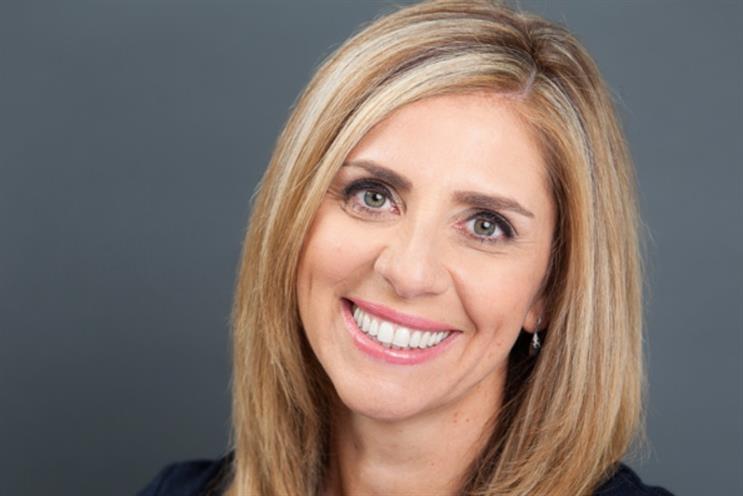Nicola Mendelsohn is vice-president EMEA at Facebook.
Last month, I celebrated my second anniversary – or ‘Faceversary’ as it is affectionately known by my colleagues – at Facebook.
It prompted me to look back at just how much the business has changed in that short time. Two years ago, neither Oculus Rift nor WhatsApp were part of the Facebook family and we hadn’t yet launched the Atlas platform or introduced advertising on Instagram.
If all of that can happen in two years, it’s impossible to predict where the business will be after the next two.
As you read this, I will have just returned from my 13th Cannes Lions – which I can’t quite believe. As anyone in the industry will tell you, Cannes is a totally unique event and it is genuinely one of my favourite weeks of the year.
It is a chance to celebrate truly powerful and game-changing work, to catch up with friends and colleagues, old and new, and to have your eyes opened and perceptions challenged by some of the industry’s most inspirational speakers.
90% of 35m people who come back to Facebook every month do so on mobile
Future of mobile
Mobile was at the heart of our message this year. While it may seem like a well-trodden narrative, the transformative nature of mobile cannot be overstated. In the UK alone, more than 90% of the 35m people who come back to Facebook every month do so on mobile and we’re seeing this trend across Europe, the Middle East and Africa.
It is Facebook’s mission to help brands make sense of mobile and truly embrace the opportunity it presents. Mobile has triggered an unprecedented growth in visual communication in almost every part of the world. Whether it’s the 4bn videos viewed around the world every day, or the 2bn photos shared daily across Facebook, Instagram, Messenger and WhatsApp, it’s clear that words are now no longer enough.
But it’s not just about how we communicate. Our mobile world has brought with it a new era of brand-building, where people have an infinite supply of content and total control of where to spend their time and attention.
This has profound implications for businesses and advertisers, which have to really push the boundaries of creative content to capture the interest of their audiences.
Engaging content
At Facebook, we believe that the content shared by advertisers should be every bit as engaging as that shared by your friends and family. Mobile has upped the ante, but brands should not feel intimidated. If anything, mobile presents an opportunity for them to reach more people and tell better stories.
I’m fortunate that I get to travel a lot for work – I have visited Sweden, Ireland, France, Italy and Saudi Arabia in the past month alone – and I am always fascinated by the nuances of the EMEA region.
Innovation isn’t just coming from developed markets. Africa, for example, is fast becoming a mobile continent. The entire payment system in Kenya is mobile and, in some ways, mobile behaviour in Africa is far more advanced than it is in the UK.
It’s this kind of innovation and potential that drives us to constantly evolve our emerging markets advertising products.
For example, in our new Creative Accelerator programme, Facebook’s Creative Shop works with brands and agencies in high-growth countries, such as India, Indonesia, Kenya and Turkey, to create visual and impactful campaigns that work for the people and devices in those markets.
Matter of diversity
At Cannes we announced that we are expanding this programme globally, a step forward for us in helping people and business everywhere get the best possible experience from Facebook.
Across Europe, the Middle East and Africa, our teams see an incredibly broad spectrum of communications, social, technological and political landscapes at first hand, which helps us to understand the priorities of each different country. It’s crucial that what we do mirrors how people actually behave.
The issue of diversity has always mattered to me and one of the commitments I made at the start of the year was to ensure I carved out time to meet women in business in all the different countries I visited. As a result, I have met some amazing women, who have completely inspired me.
What would you do if you weren’t afraid?
In Milan, I met Lisa and Sara Gucciarelli, two sisters who founded a wonderful ecommerce business called Buru Buru, which sells Italian-designed products. They have grown their three-year-old business using the Facebook platform and now employ 12 people.
Similarly, when I was in Saudi Arabia, I met several female entrepreneurs through Glowork (an organisation designed to empower Saudi women through work) who are building their businesses through Facebook. We are enabling them to target customers both locally and internationally.
These past two years at Facebook have shown me that trying, failing and learning is a process you need to go through. It makes you better, more motivated and more willing to shake things up.
One of my favourite sayings – and one we have displayed on posters around the offices – is: "What would you do if you weren’t afraid?" Whether it’s creating new advertising products for small and medium-sized businesses or expanding our physical footprint – we are about to open an office in South Africa – we don’t stand still.
The pace of change in this industry is incredible and, if the past decade has taught us anything, it’s that there really are no limits – only the ones we put on our own imaginations.
Recommended


